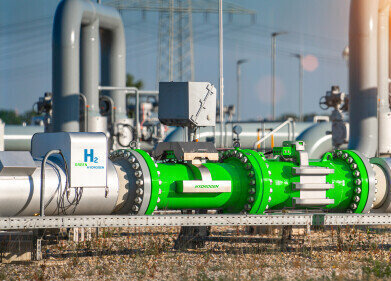Biofuel industry news
What Determines the Quality of Oil?
Feb 04 2022
Market trends aren’t the only factor that influences oil prices, with quality also playing a key role in determining price. Below, we take a closer look at the physical and chemical parameters that influence oil quality, and how they’re assessed.
Density & API gravity
Density is one of the most important variables used to determine oil quality. Crude oil is generally classed as light, medium or heavy depending on density. American Petroleum Institute gravity (API gravity) is a scale used to compare crude oil density to water. Oils with API gravity of more than 10 are less dense than H2O and will rise to the surface. Crude oils with API gravity of less than 10 are denser than H2O and will settle at the bottom.
Generally, oils with API gravity of more than 31.1 are classed as light, while oils between 22.3 and 31.1 are medium. API gravity of between 10 and 22.3 puts an oil into the heavy category. Some of the heaviest ‘extra heavy’ oils have API gravity of less than 10.
Density meters are the instrument of choice for measuring API gravity, with the latest instruments featuring digital technology and built-in software. Both ASTM and the German Institute for Standardisation (DIN) have published standards on how to calculate API gravity using density meters. These include:
- ASTM D 4052-96
- ASTM D 5002-99
- DIN 51757 (1994-04)
- DIN ISO EN 12185
Hydrometers are also be used to measure density, though the method doesn’t offer the same accuracy as density meters and can be difficult to reproduce.
“Sweet and sour” sulphur
Sulphur content is used to class oil as sweet or sour. It’s another important characteristic used to categorise oil and has a big impact on quality and price. For example, West Texas Intermediate (WTI) has a low sulphur content and is considered a high-quality product.
The most valuable oils are light (high API gravity) and sweet (low in sulphur). They’re generally more valuable than heavy, sour counterparts. This is because widely used products, such as commercially sold petrol and diesel, are easier and more cost-efficient to produce from oil that’s light and sweet. Grades with high API gravity and low sulphur concentrations don’t call for the same heavy-duty infrastructure and energy-intensive processes needed to refine heavy, sour grades.
Complete oil assays
Density and sulphur aren’t the only characteristics used to determine the quality of oil, with producers, refiners and buyers also concerned with variables such as salt content, nitrogen, acidity, metals, contaminants and more.
Petroleum experts Dr. Raj Shah, Gleb Khlebutin and Blerim Gashi introduce the latest technology being used to assess lubricity in ‘An innovative instrument to test lubricity in fuels: Ball-on-Cylinder Lubricity Evaluator (BOCLE)’.
Digital Edition
PIN 26.1 Feb/Mar 2025
March 2025
Analytical Instrumentation - Elemental Analysis for Quality and Process Control at Refineries, for Lubricants and Wear Metals in Engine Oils - Synthetic Lubricants: New Developments - Scaling...
View all digital editions
Events
Apr 08 2025 Birmingham, UK
Apr 08 2025 Kielce, Poland
Apr 08 2025 Ravenna, Italy
Apr 08 2025 Southampton, UK
Apr 08 2025 London, UK



















